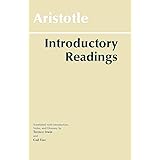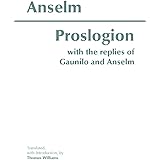| Print List Price: | $4.90 |
| Kindle Price: | $1.99 Save $2.91 (59%) |
| Sold by: | Amazon.com Services LLC |
Your Memberships & Subscriptions

Download the free Kindle app and start reading Kindle books instantly on your smartphone, tablet, or computer - no Kindle device required.
Read instantly on your browser with Kindle for Web.
Using your mobile phone camera - scan the code below and download the Kindle app.

OK
A Treatise Concerning the Principles of Human Knowledge Kindle Edition
- LanguageEnglish
- PublisherGood Press
- Publication dateNovember 20, 2019
- File size1401 KB
Customers who read this book also read
Editorial Reviews
About the Author
Product details
- ASIN : B081ZD4GNS
- Publisher : Good Press (November 20, 2019)
- Publication date : November 20, 2019
- Language : English
- File size : 1401 KB
- Text-to-Speech : Enabled
- Screen Reader : Supported
- Enhanced typesetting : Enabled
- X-Ray : Not Enabled
- Word Wise : Enabled
- Sticky notes : On Kindle Scribe
- Print length : 89 pages
- Customer Reviews:
About the author

Discover more of the author’s books, see similar authors, read author blogs and more
Customer reviews
Customer Reviews, including Product Star Ratings help customers to learn more about the product and decide whether it is the right product for them.
To calculate the overall star rating and percentage breakdown by star, we don’t use a simple average. Instead, our system considers things like how recent a review is and if the reviewer bought the item on Amazon. It also analyzed reviews to verify trustworthiness.
Learn more how customers reviews work on Amazon-
Top reviews
Top reviews from the United States
There was a problem filtering reviews right now. Please try again later.
In this treatise, Berkeley expounds on his theory of immaterialism. This basically states that no material thing exists outside of that which perceives it and bears no relation whatsoever to solipsism—the belief that only the self exists.
Berkeley was a deeply religious man who believed that nature and matter did not exist without being perceived in consciousness; that this perception was an idea instilled in the spirits of men through the infinite all-perceiving mind of God. Therefore, the revelation of God as the very originator of creation is available to anyone not bound by the notion of material existence outside of consciousness.
From a materialist, purely Cartesian, Newtonian perspective, his ingenious works might seem ludicrous. There were no physicists at the time to chime in with theories of quantum physics that so readily collapse the foundations of materialism. Berkeley stood his ground alone.
The prose is bloated and bombastic, but let’s not forget the text was written in 1710, and compared to other writings of his time, his was simple and straight to the point.
A TREATISE CONCERNING THE PRINCIPLES OF HUMAN KNOWLEDGE is a treasure to anyone with a spiritual or religious inclination. The message is as deep as it is subtle, and can be quite transformative if you allow its transcendental logic the benefit of a truly open mind.
As our first example of Berkeley's childishly simplistic crusade on science we may consider his rejection of absolute space. Newton of course presented his famous bucket argument in favour of the theory of absolute space. Berkeley proposes to weasel out of this argument by redefining the concept of relative motion in a very opportunistic manner:
"To denominate a body moved, it is requisite, first, that it change its distance or situation with regard to some other body; and secondly, that the force or action occasioning that change be applied to it." (§115)
In Newton's theory, of course, such a separation of force and motion is impossible, since force and acceleration are interdefinable (F=ma). So apparently Berkeley has some other mysterious notion of "force" in mind, which he does not specify. All we know about Berkeley's concept of "force" is that apparently it is somehow logically prior to motion: before we can tell if an object is moving or not we must first decide if there is a "force" acting on it. Since Berkeley gives no indication of how to determine whether or not forces are present, his pseudo-definition of motion amounts to this: "an object is moving if and only if I, George Berkeley, self-absorbed dilettante, say so."
If we turn to Berkeley's discussion of geometry we again find nothing but unsubstantiated posturing. For example, Berkeley rejects infinite divisibility in favour of a sort of geometrical atomism:
"There is no such thing as a ten-thousandth part of an inch; but there is of a mile or diameter of the earth ... The ten-thousandth part of that [one-inch] line ... is nothing at all, and consequently may be neglected without any error" (§127).
This idea, claims Berkeley, "at once clears the science of geometry from a great number of difficulties and contradictions ... which render the study of mathematics so difficult and tedious" (§123). For while infinite divisibility has always been "thought to have so inseparable and essential an connexion with the principles and demonstrations in geometry" (§123), this is a mistake, and, in fact, according to Berkeley, "whatever is useful in geometry ... doth still remain firm and unshaken on our principles" (§131).
All of this is arrogantly asserted without a trace of an argument; which is no wonder since it is such madness. Infinite divisibility is not "thought" to be essential to geometry, it plainly is so. Berkeley's rejection of this principle essentially nullifies every single geometrical proof that has ever been devised, while of course leaving us completely in the dark as to how "whatever is useful in geometry" is supposed to survive this geometrical armageddon. As an example, it is easy to see that Berkeley's claim entails the rejection of Euclid's axiom that a line is determined by two points: consider an equilateral triangle ABC with sides that are divisible into ten thousand parts; now take a line segment DE that is not divisible into ten thousand parts and place it parallel to the base AB and touching the other sides AC and BC; now divide AB into ten thousand parts and let F and G be two points one ten-thousandth apart; then, according to Berkeley, since DE is not divisible into such parts, the lines FC and GC both go through the same point H of DE; thus the points C and H do not uniquely determine a line.
This book is to be strongly recommended as it provides a multitude of resources that contextualise, criticise, and clarify, the positions put forward by Berkeley in this work.
The most substantial contribution is the extensive introduction comprised of 15 punchy sections, covering Berkeley's life, his academic heritage, and analysis of his thought (both internal and external to that given in the Treatise). Dancy is fair to Berkeley in setting forth the most robust defences of his position, and marshalling critical arguments against the Berkelian stance. This is supplemented by an extremely thorough set of endnotes that are continually present in the background of the text, offering detailed guidance whenever necessary, or desired.
Additionally, the book offers a summarised concise overview of the arguments provided in the Treatise, a glossary of archaic terms(!), and a very helpful short section entitled "How to use this book" (why don't more books include this sort of thing?). There is also a manageable annotated bibliography of further reading to trail a path for academic expansion.
Overall, I found that this book provided a systematic treatment of the text and provided a solid structure of support surrounding the subject. Also included, the letters between Berkeley and Johnson, provide an unexpected bonus. This book is relatively cheap, considering its breadth and depth. In my opinion, it is an ideal text through which to study (and enjoy) Berkeley's Treatise.









